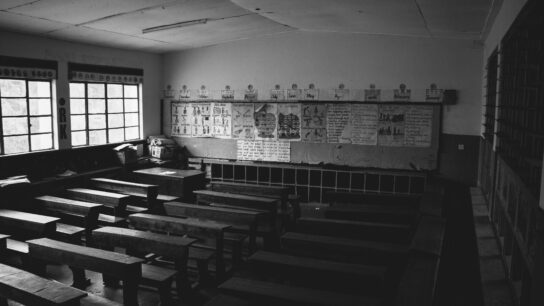“Education Scholarships”
While the idea of school vouchers has been kicked around for several years now as an alternative to what some have called the failing public school system, there have been several states which have allowed varied types of school voucher or “education scholarships” to be enacted. Now, regardless of what side of the voucher issue one stands, it is an issue that has been brought to the forefront of the education reform movement by President Trump which is evident by his appointment of one of the Country’s most ardent supporters of school choice as the new Secretary of Education. Betsy DeVos and her philanthropist family have channeled millions of dollars into the movement particularly in her home State of Michigan. President Trump solidified his support of school choice during his address to a joint session on Congress on February 28, 2017.
Despite the fact that there are many issues surrounding school choice and the use of vouchers, after all the rhetoric there seems to be only two sides of the subject where most people find themselves; those who believe that publicly funded vouchers or “education scholarships” is the best way to help disadvantaged students get the best possible education and the other side finds those who think that such programs strip away funds from already struggling public school districts. If the issue was really that simple, perhaps a reasonable balance could be reached. Unfortunately, it is definitely not.
The good news is that right or wrong, good or bad; there is data to be analyzed. According to the National Conference of State Legislatures, there are nearly thirty states that have vouchers or some closely related form of private school choice. Therefore, research is available that may be able to shed some light on the issues of funding, achievement, graduation rates, performance, etc.
One of the original issues surrounding school vouchers was the question of its constitutionality. Under the church separation clause it was originally thought that school vouchers would violate U.S. Constitution’s prohibition on government establishment of religion. This is no longer a Federal question. In 2002 the Supreme Court found in the Zelman v. Simmons-Harris, case that the voucher program was constitutional because it served a valid secular purpose and it was neutral to religion—in other words, parents choose which schools the money goes to, not the state. This ruling resulted in the expansion of school vouchers into several other states along with the District of Columbia. However, this ruling has not been the total end to the question as it has pertained to prohibitions on aid to religious organizations in 37 states where these laws exists. But like everything else, there are loopholes. Many states have avoided problems by simply developing programs such as tax-credit scholarships and education savings accounts as creative ways to work around such constitutional restrictions.
Let’s say that our Constitutional conscience is clear and we agree that state funded religious education is ok. Will the amount of subsidized funding through a voucher system cover the entire cost of attending a private and or religious school? Well some research has shown that only a fraction of those students who would qualify for vouchers or education scholarships actually choose to take advantage of them. Many disadvantaged parents find that the remaining cost of a private school education is still beyond their grasp even with the subsidy. In fact, in Cleveland for instance, less than five percent of school age children attend schools of choice. The reality of the school voucher system there is that two thirds of parents excepting vouchers were already sending their children to private schools. These resulting statistics and those like them simply do not support the idea of school choice for a means to improve education for disadvantaged students in failing schools. Rather, some reports have shown that, in Cleveland at least, the local public schools may be the better choice.
Closer to home, here in New Jersey, the Courier Post Newspaper reported this week that a number of privately run charter schools that have been operating in some of New Jersey’s largest cities like Newark, Camden and others, are having their charters revoked due to consistently low student achievement. Others are on notice to improve or face the same consequences.
What have we done? Have we set up parallel failing systems? Has our willingness to give up on our existing public schools moved us toward their destruction? Now sooner than later, before the new powers to be set out on their mission to expand these parallel worlds, we must stop, take a breath, do a little reading and come to the conclusion as I have: fix the tremendous public education system that has gotten us this far before it’s too late.






